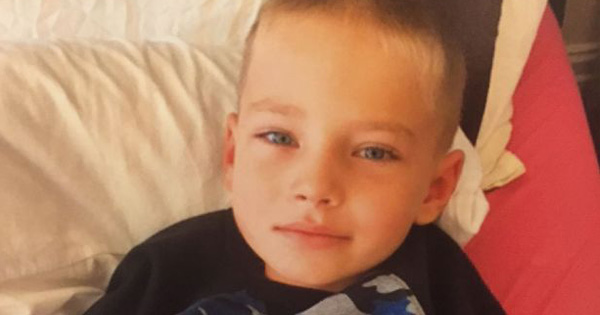Advertisement
Kaden Hadfield, 5 years old, had a very difficult time walking. There were some occasions when he could barely stand up at all. Due to the constant pain and struggle, Kaden was sent to the hospital for more than 20 times.
His parents knew something was severely wrong with him. The doctors, however, sent him home with Ibuprofen and Calpol. Two years after he was first taken to the hospital for the same symptoms, Kaden was eventually referred to Alder Hey. Hey prescribed him steroids.
Unfortunately, it was too late for Kaden. The disease that the doctors failed to identify and diagnose had already destroyed his body. Treatment initially worked, but, in the end, Kaden suffered enough for his body to surrender.
Kaden’s disease was arthritis, the Manchester Evening News reports.
Caitlin Tattersall and Lee Hadfield, Kaden’s parents, are currently waiting for the official release of information regarding their son’s death. Tattersall and Hadfield are separated.
Tattersall, 25 years old, said, “It was heartbreaking, the last time I saw Kaden he was in intensive care, they had his chest open, I could see his heart and lungs. They tried to save him for 13 hours. But I don’t understand. I feel like if Kaden had just had the medication he needed earlier he would be here today.”
She continued, “He had been so unwell for so long he never even complained from the pain, but he needed help. I was taking him to school – he was sitting through it and not complaining. It took two years to get Kaden an appointment at Alder Hey, they diagnosed him straight away but it was too late.”
Kaden experienced the first pain when he suddenly woke up with throbbing sensation in of one of his ankles. It was initially diagnosed as a sprain. The pain, however, grew and transported to the other ankle.
Hospitals ran blood tests and showed that Kaden had anemia and vitamin D deficiency. The pain continued to grow and started to affect all of his joints. He was ran through ultrasound, which showed that he was already suffering from tissue damage.
Tattersall, who lived in Blackpool, “It was worse in the morning, he couldn’t walk, he couldn’t even scratch his own nose his hands were so swollen and stiff.”
Tattersall continued, “We got referred to a physio – the therapist said I was doing too much for Kaden and that’s why he wasn’t able to do things himself. I felt like I was banging my head against a brick wall.”
Kaden was finally admitted at Alder Hey Hospital. The doctors thought that Kaden had leukemia due to the severity of the damage in his body. They diagnosed him with systemic onset juvenile arthritis. He was later administered with steroids.

The initial treatment worked. Kaden was able to walk after a month and a half in the hospital. However, the next day, Kaden was taken to intensive care after he complained about a ‘stabbing pain’ in his stomach. His heart eventually stopped beating.
Tattersall told Manchester Evening News, “They had all these wires on him, they had to open his chest, I could see his heart and his lungs. They were trying to stop him bleeding but it was just pouring from him.”
She continued, “I knew he was going and there was nothing they could do. I was just screaming at them to try.”
Tattersall said that Kaden was “loving, kind, and caring.” His dad, who lived in Oldham, wasn’t available to provide a comment.
Tattersall added, “If he was in pain he would just entertain himself, play on his computer. I had to take him to school in a pram in the end, he didn’t like it, he said everyone would think he was a baby.”
“He was in agony every day and he never moaned. Everyone who ever met him loved him.”
A spokesperson for Blackpool Teaching Hospitals NHS Foundation Trust said, “Our thoughts are with Kaden’s family at this sad time. Upon hearing of his death, the trust initiated a case review which is ongoing and is standard procedure in all children’s deaths.”
Kaden’s death due to arthritis was definitely sad and such an unfortunate way for a child to die from. However, his story should reconsider the possibility that such disorder could also happen to children.




